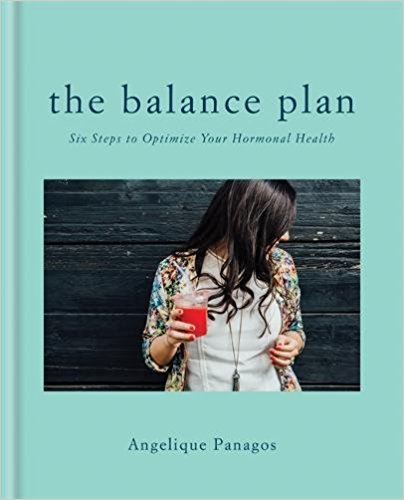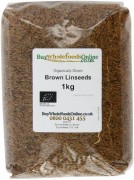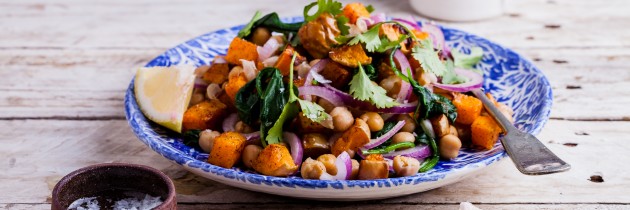The symptoms and treatment of Polycystic Ovary Syndrome (PCOS)
Polycystic Ovary Syndrome (PCOS) is a common endocrine disorder found in women. You are not alone and this is a subject very close to my heart, as I am one of approximately 5 to 10% of women affected by this condition worldwide (read on for my personal story).
That statistic in itself is scary but what’s even worse is that PCOS cannot be diagnosed with one simple test. Signs and symptoms vary from woman to woman and less than 50% of cases are diagnosed.
Not only is PCOS one of the leading causes of fertility problems in women, it affects their appearance, self-esteem, mood, and also brings with it additional health problems.
What is PCOS?
This hormonal disorder causes a collection of small bead-like cysts around the outer edge of the ovaries, yet it’s not just the ovaries that are affected. PCOS causes hormonal imbalances in each of your body’s glands, including the pituitary, pineal, thyroid, parathyroid, thymus, adrenal, and pancreas.
The exact cause? The short answer – researchers are not entirely sure! However, we do know that it involves a combination of genetic and environmental factors, and many researchers believe it is caused by excess insulin produced in the body.
Excess insulin, which leads to insulin resistance, is known to cause the ovaries to produce extra androgen (a male hormone, testosterone), which can cause many of the symptoms associated with PCOS. The condition itself can also result in heart disease and Type 2 diabetes if left untreated.
There is no ‘cure’ for PCOS but you can address the root causes of the symptoms to manage the condition and render it almost inactive.
Knowing the signs and symptoms of PCOS can also help you get an early diagnosis, so you can begin correcting the condition in a timely manner.
What the doctors are looking for…
There are three main features of the condition and, according to the NHS, if you have two or more you will be diagnosed with PCOS.
- Cysts that develop inside your ovaries
- Ovulation is disrupted and eggs are not regularly released
- Androgen levels are high (male hormone, testosterone)
Symptoms and signs
Here are some of the most common symptoms and signs related to PCOS:
- Oily skin and/or recurring acne
- Infrequent, irregular periods or amenorreah
- Difficulty or inability to fall pregnant due to irregular, or lack of, ovulation
- Hirsutism: excess hair growth on the face, chest, back and/or buttocks
- Weight gain
- Hair loss from the head or thinning hair
Conventional treatment
There are many treatments available for PCOS and your doctor will tailor the treatment to your specific symptoms. After completing an extensive investigation, including blood tests and ultrasound, he or she may suggest the following:
Medication to help regulate your period. For individuals who are not trying to fall pregnant, the doctor may prescribe a low-dose birth control pill. This will help to decrease androgen production and balance your hormones. However, it will not fix the underlying causes of PCOS and taking the pill presents its own risks.
Metformin is commonly prescribed to regulate insulin for those women with insulin resistance and Type 2 diabetes.
For individuals wanting to become pregnant, a medication such as Clomid (Clomifene citrate) may be prescribed to help induce ovulation (this stimulates your ovaries to release eggs).
Medication to reduce excess hair growth. Your doctor may prescribe a medication such as Aldactone to help block the effects androgen has on the skin. Because this medication is known to cause birth defects, it is suggested that you tell your doctor if you are pregnant or plan on becoming so. Again this is not dealing with the underlying causes!
If you are looking to become pregnant and medication doesn’t help to induce ovulation, another option is an outpatient surgical procedure called laparoscopic ovarian drilling. This ovulation-inducing procedure involves the surgeon making tiny holes in the follicles on the surface of the ovaries with a laser.
My thoughts?
As PCOS is a lifelong condition we need to be looking at – and correcting – the underlying causes, which includes correcting insulin resistance and eating to nourish the body and balance the hormones. If not, we are just using a ‘band aid’ approach, and when we take that band aid off we are left with the original symptoms.
Even if you choose to take the conventional approach, please work on the underlying causes at the same time. Try my PCOS programme!
Dietary changes & advice
Food cravings: food cravings tend to increase with PCOS, especially for carbohydrates. Some studies have found that younger women who present with raised androgen levels and menstrual disturbances have greater cravings for high fat and fast foods than those with normal levels.
Weight management: insulin resistance is a key concern among those with PCOS, with research studies presenting 60% of women with PCOS as obese. Obesity itself carries a host of serious health risks, but it seems that obese women with PCOS are on average heavier than obese women without. It really is advisable to change your eating habits with this condition. This can help improve insulin resistance, testosterone levels, and improve ovulation and menstruation. Physical activity is also known to help improve glucose metabolism and insulin sensitivity, while reducing abdominal fat.
Fatty acids: these have been reported to affect the glucose metabolism by altering insulin function, as a diet with high monounsaturated and polyunsaturated fatty acids is associated with a decrease in insulin sensitivity.
Low GI diet: current research is in favour of changing overall dietary habits to improve insulin sensitivity in addition to this and weight loss. The best advice would be to combine weight loss with a healthy diet and low GI foods.
Supplements: I would advise you to work with a practitioner to get the correct supplements for you as an individual. Some of the supplements that I use in clinic include:
- Vitamin D: this vitamin has been found to be involved in egg maturation and development.
- Oily fish: Omega-3 fats (EPA and DHA) found in cold water fish can help increase fertility levels and lower androgen levels.
- Myo-inositol (MYO): improves all aspects of PCOS from insulin sensitivity, reproduction and hormonal imbalance to metabolic issues.
- N-acetylcystine (NAC): boosts your immune system and protects against free radical and oxidative stress.
My personal story
What really drove my passion in nutrition and natural healing (and led me to study at the Institute for Optimum Nutrition, where I spent four years qualifying in this amazing field!) were my own health issues.
Having an under-active thyroid and PCOS, I struggled with my weight (and mood) and felt as if all I were eating were lettuce leaves, and yet I still managed to put on 20kg in two years.
I was already on thyroid hormone replacement therapy when they recommended I take pharmaceutical drugs (AKA the pill!) for the PCOS. I declined, as by that stage my knowledge of nutrition and nutrients had developed enough for me to decide to try the natural route first.
I am happy to say that it all paid off and through dietary changes, supplements, total perseverance and determination I managed to drop 22kg in weight, which I have kept off for more than four years! Furthermore, I now have a 30 day menstrual cycle instead of 90.
My personal journey doesn’t end here though, as the next step is to have a healthy baby naturally. Meanwhile, I would love to assist other women in dealing with this condition to the same life-changing results!
Nourishing well wishes,
Angelique
Consult your doctor or health care practitioner for any health problems, and before embarking on any new health regimes, using any supplements or before making any changes in prescribed medications or food programmes.













